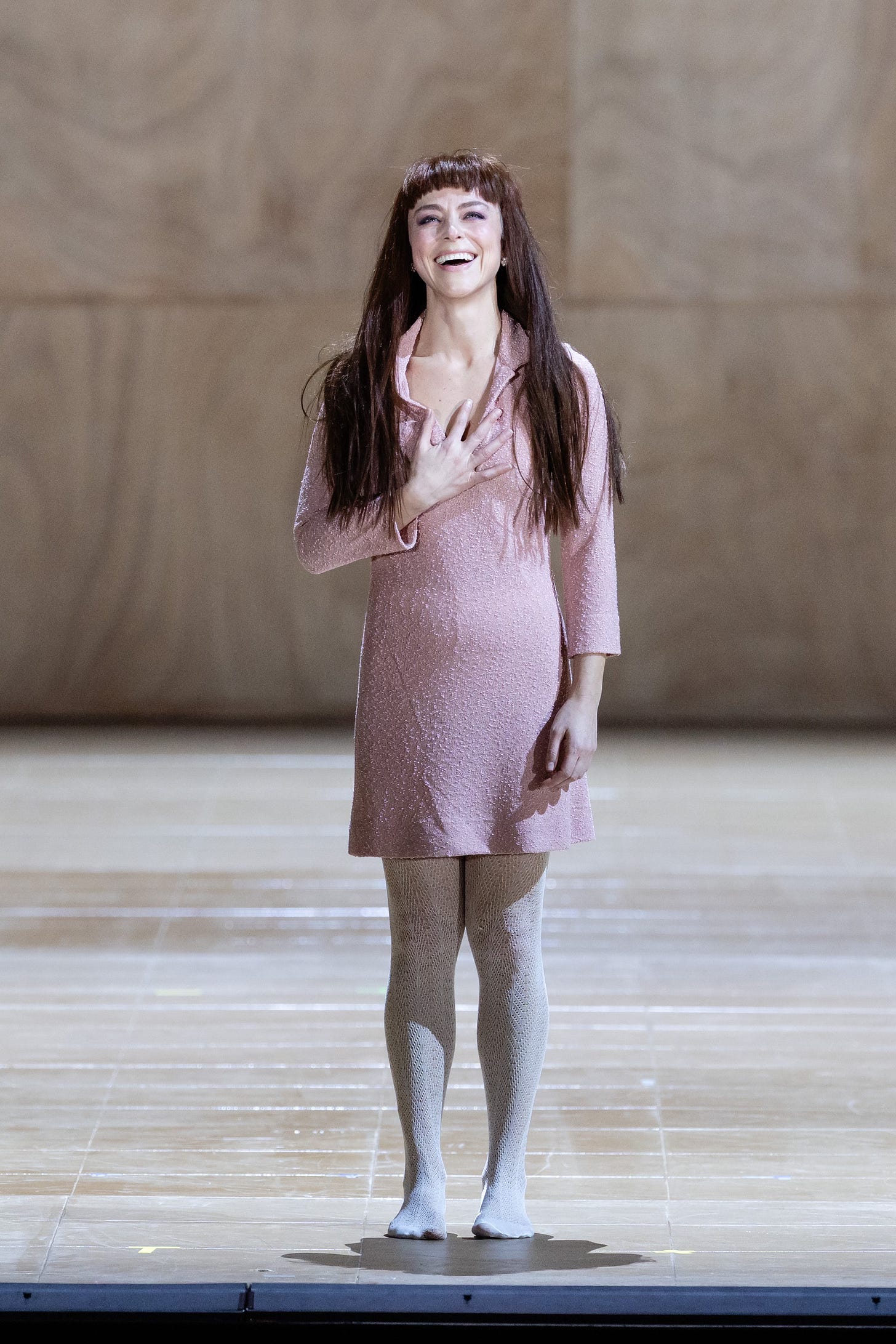Contrived Katya, fairy-tale Rosenkavalier
Corinne Winters triumphs as Janáček's heroine, Diana Damrau's Marschallin touches the heart
Spell-binding Katya: Corinne Winters Picture © Geoffroy Schied
In the words of Polish director Krzysztof Warlikowski, writing in the programme book for his new Janáček production for the Bavarian State Opera, ‘Katya is an enigma’. At least we can all agree on that. Otherwise, despite some undeniably striking theatrical images, Warlikowski’s interpretation of Katya Kabanova is a decidedly mixed bag. With sets and costumes by his regular workmate Malgorzata Szczęśniak, lighting by Felice Ross and video projections by Kamil Polak, the Polish director relocates the action to a community centre in what looks like 1970s Soviet era utility glam, but apparently represents the North of England in Thatcher’s Britain: the cast sings in Czech amid neon-lit signage in English - ‘Toilet’ and ‘Mineral Bar’, whatever that might be.
At curtain-rise the townspeople are enjoying a kind of tea-dance. When the cheesy popular music stops, Katya goes alone to the juke box (which - hey presto! - has Janáček’s orchestral introduction as one of its selections), and begins to jive, all the more energetically when the music becomes animated. For me, this poses problems of ‘manners’ or social mores: from the very start this Katya is out on the razzle in what looks like a provincial town, so that when her husband and terrifying mother-in-law eventually arrive from church, she is already there boogying and making a spectacle of herself. It’s a curious conception of a character Janáček claimed was his Madam Butterfly to his muse, Kamila Stösslova.
The bizarre characterisation is carried through to Katya’s Act 2 tryst with Boris, which in Warlikowski’s imagination takes place not in the locked garden behind Kabanicha’s house but in the ‘Mineral Bar’ in full view of other patrons, some seated as if for a public performance. I can’t say that this business offers new insights into Janáček’s characters - in marked contrast to stagings by Nikolaus Lehnhoff (Glyndebourne), David Pountney (WNO, Scottish Opera, ENO and elsewhere) or David Alden (Houston, ENO and most recently Grange Park Opera).
Keep reading with a 7-day free trial
Subscribe to Operalogue to keep reading this post and get 7 days of free access to the full post archives.




